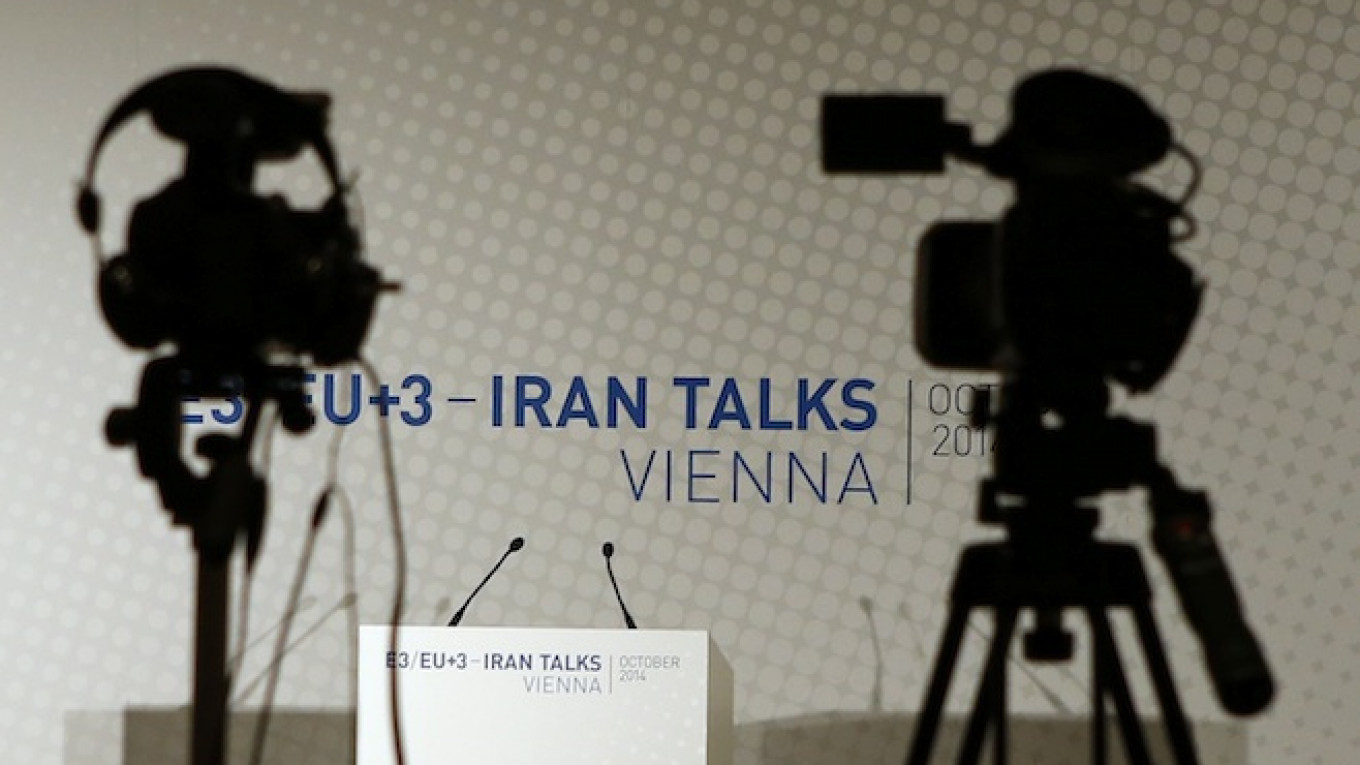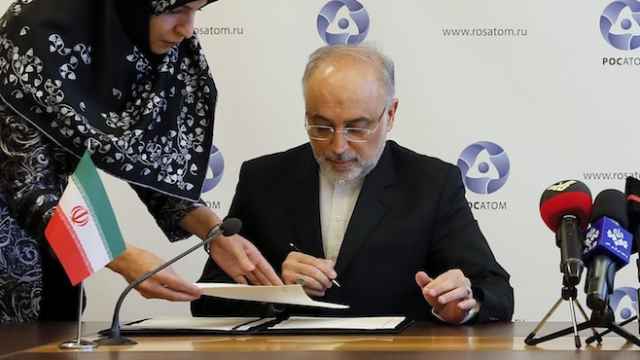VIENNA — Iran and six world powers look set to miss Monday's deadline for resolving a 12-year stand-off over Tehran's nuclear ambitions, though Iranian officials say they can turn to Beijing and Moscow if talks in Vienna fail to end Western sanctions.
While the deadline, already extended in July, could be extended again, Iranian officials have said they are working on an alternative if the talks collapse altogether, which would see them look east and north for diplomatic and economic support.
"Of course we have a plan B," a senior Iranian official said. "I cannot reveal more details but we have always had good relations with Russia and China. Naturally, if the nuclear talks fail, we will increase our cooperation with our friends and will provide them more opportunities in Iran's high-potential market."
He added: "We share common views [with Russia and China] on many issues, including Syria and Iraq."
China is the biggest buyer of Iranian oil and one of the few countries to continue absorbing large volumes of Iranian exports without any big decrease since U.S. and EU sanctions were tightened in the past three years. Russia has sold Iran weapons, built a nuclear power station and could provide technology.
Both countries can provide diplomatic cover at the UN Security Council, where they wield vetoes that can help prevent sanctions from be widened.
Still, the help has serious limits: China has demanded steep discounts for buying Iranian oil, and is likely to pay even less now that its own demand for oil is softening and the global price is tumbling. Russia has no use for Iranian oil and is suffering its own sanctions over the Ukraine crisis.
If the nuclear talks collapse completely — an outcome none of the parties wants — neither China nor Russia can stop the U.S. and European Union from taking unilateral steps outside the United Nations to expand the painful energy and financial sanctions that hobbled the Iranian economy since 2011.
"Some Iranian leaders believe that in case of failure, they can count on their neighbors to skirt the sanctions and bank on big power rivalries to undercut the restrictions, but this strategy's success is far from certain," said Ali Vaez, a senior Iran analyst at the International Crisis Group.
"Likewise, Russia and China have repeatedly sided with the West in isolating Iran. Similarly doubtful is how much more the economy could recover without meaningful sanctions relief, amidst plummeting oil prices."
Pressure Easing
Still one Western diplomat at the talks said he thought the impetus for Iran to reach a deal was less intense now than last year, due to the limited easing of sanctions already negotiated.
He also cited the eagerness of Western companies to end sanctions and go back to Iran, and European court rulings against some EU sanctions measures.
"The pressure [on Iran] to go for a deal at all costs is less than it was 12 months ago," the diplomat said. "If there's no deal, Iran will turn to China and Russia, as well as some European countries that are prepared to do bilateral business with Iran."
Another Iranian official said there are factions within Iran that are skeptical about deals with the West and prefer alignments with powers like Russia and China which have condemned unilateral U.S. and EU sanctions.
"The president [Hassan Rouhani] is in favor of this deal because he can fulfill his promises to improve the economy but the Supreme Leader [Ayatollah Ali Khamenei] and also the Revolutionary Guards prefer moving towards the East and working with China and Russia instead of the West," he said.
A Message from The Moscow Times:
Dear readers,
We are facing unprecedented challenges. Russia's Prosecutor General's Office has designated The Moscow Times as an "undesirable" organization, criminalizing our work and putting our staff at risk of prosecution. This follows our earlier unjust labeling as a "foreign agent."
These actions are direct attempts to silence independent journalism in Russia. The authorities claim our work "discredits the decisions of the Russian leadership." We see things differently: we strive to provide accurate, unbiased reporting on Russia.
We, the journalists of The Moscow Times, refuse to be silenced. But to continue our work, we need your help.
Your support, no matter how small, makes a world of difference. If you can, please support us monthly starting from just $2. It's quick to set up, and every contribution makes a significant impact.
By supporting The Moscow Times, you're defending open, independent journalism in the face of repression. Thank you for standing with us.
Remind me later.





